The Duchess of Edinburgh in Colombia
Published
This week, The Duchess of Edinburgh is visiting the Republic of Colombia from Tuesday 28th November – Friday 1st December 2023, at the request of the Foreign, Commonwealth and Development Office. The Duchess is undertaking engagements in Bogotá and Cali in support of the Women, Peace and Security Agenda (WPS), and will continue her work to champion the survivors of conflict related sexual violence, and the rights of women and girls.
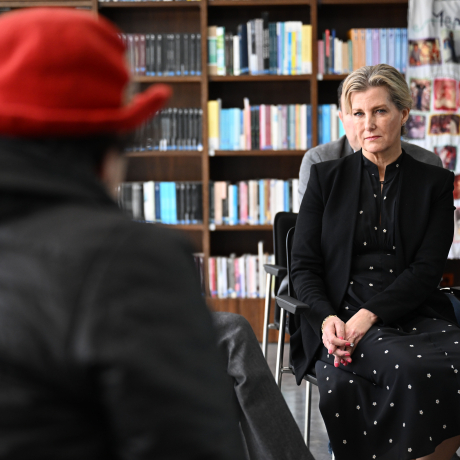
Tuesday 28th November
In Bogotá, The Duchess of Edinburgh attended a meeting with the Vice President of Colombia, Francia Márquez.
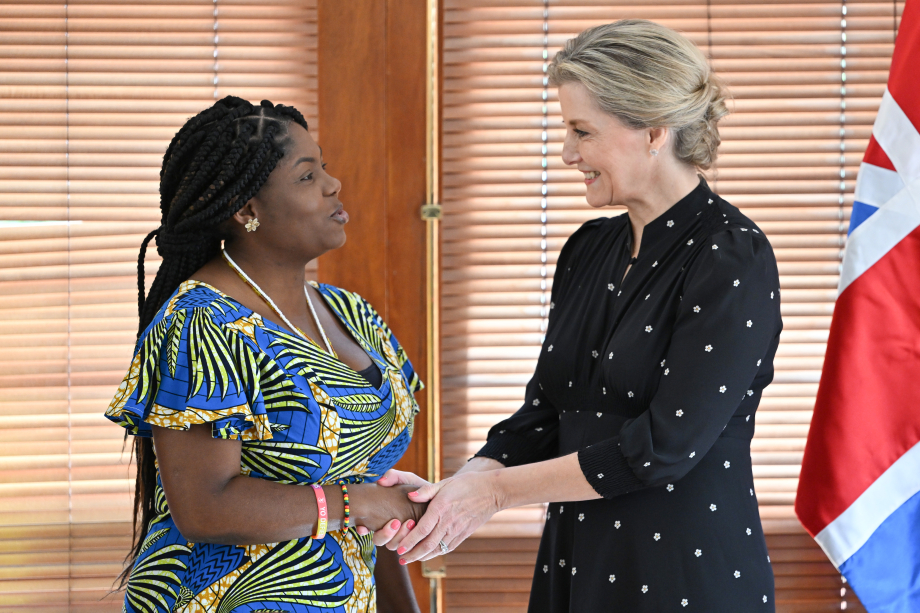
Francia Márquez is the country’s first Afro-Colombian Vice President, as well as Minister of Equality and Equity and a celebrated environmental activist.
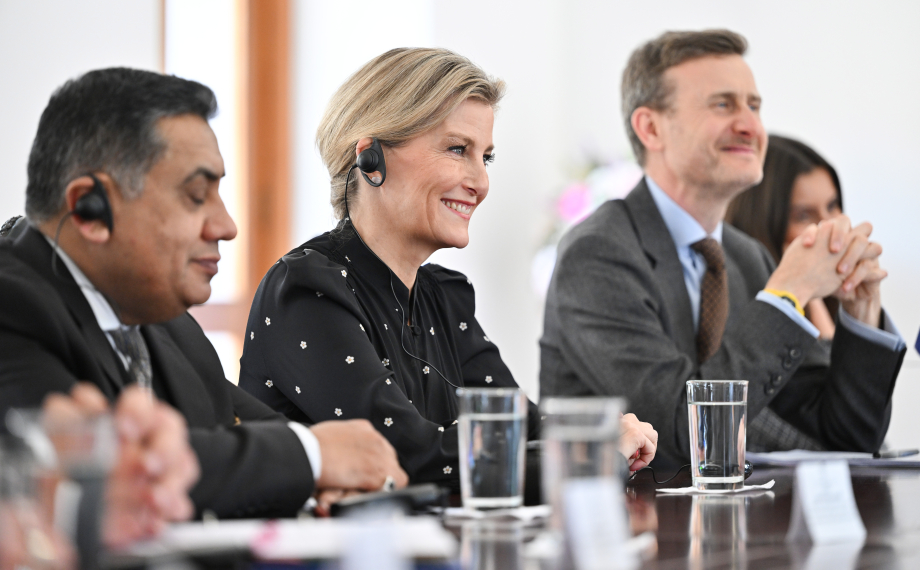
The Duchess later visited the Centre for Memory, Peace and Reconciliation (Centro de Memoria, Paz y Reconciliación), where Her Royal Highness joined women impacted by the armed conflict, including survivors of conflict-related sexual violence, to view an exhibition of artwork, “Spinning with patience to weave hopes for peace”.
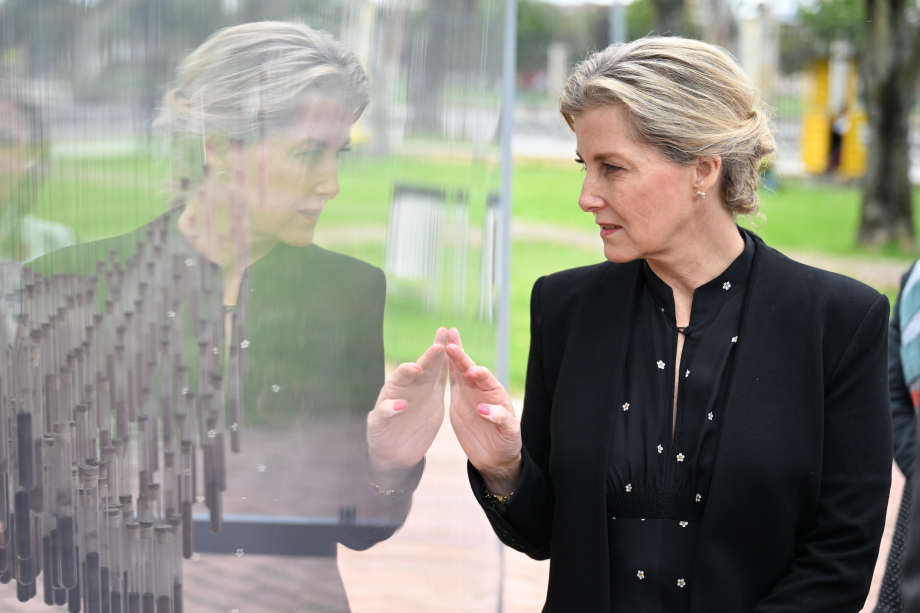
The centre, which was created in 2008, promotes a culture of peace and respect for human rights based on memory and history and was visited by The then-Prince of Wales in 2014.
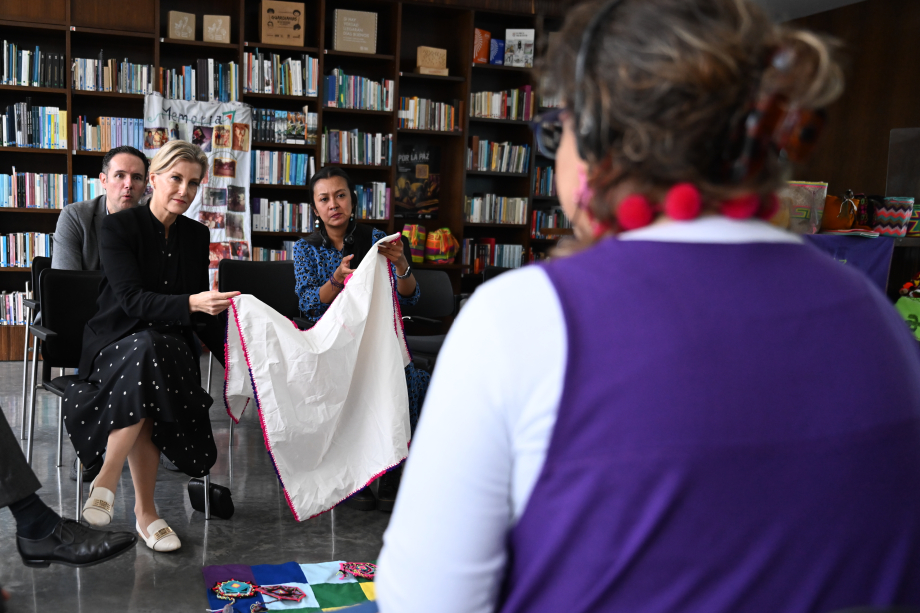
The Duchess of Edinburgh also attended a roundtable discussion, hosted by the UK and Canadian Embassies, with women from the Colombian Armed Forces, to hear about their work in support of the Women, Peace and Security agenda, ensuring the meaningful participation of women in peace processes at all levels. The Duchess met an officer who has recently completed the commissioning course at the Royal Military Academy Sandhurst.
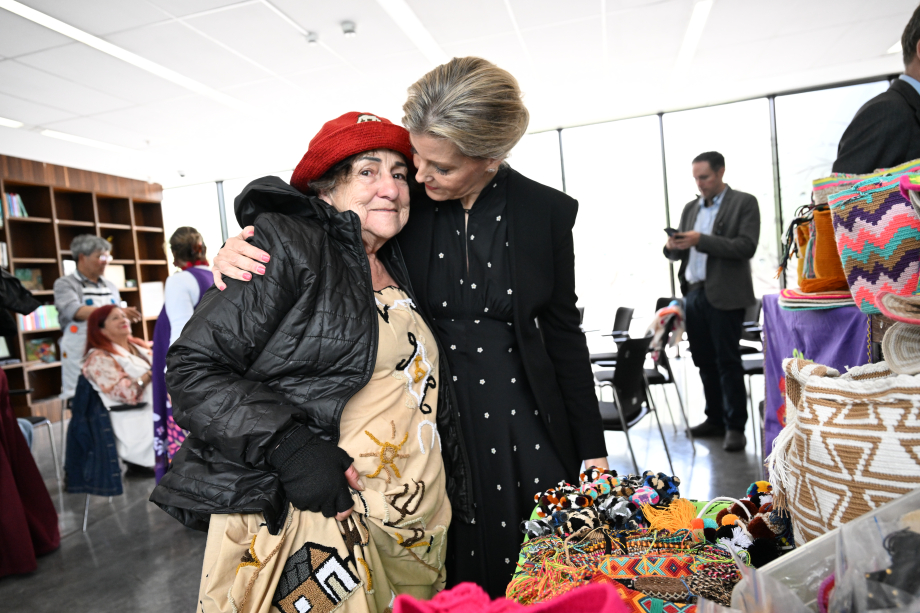
In Cali, Her Royal Highness learnt about the culture and traditions of the local Pacific region, which has been deeply impacted by the armed conflict. The Duchess spent time with women’s organisations and entrepreneurs, before viewing a musical performance.
Wednesday 29th November
The Duchess of Edinburgh learned first hand about the progress and challenges of the historic peace agreement in 2016 from former FARC combatants at the Trópicos Fruits of Hope Coffee Farm (Trópicos Frutos de Esperanza).
Her Royal Highness learned how the farm contributed to the economic reincorporation of over 130 ex-combatants and the role of women in continuing to build peace, before visiting the farm’s seed nurseries and congratulating one of the project’s leaders for their successful presentation at the London Coffee Festival.
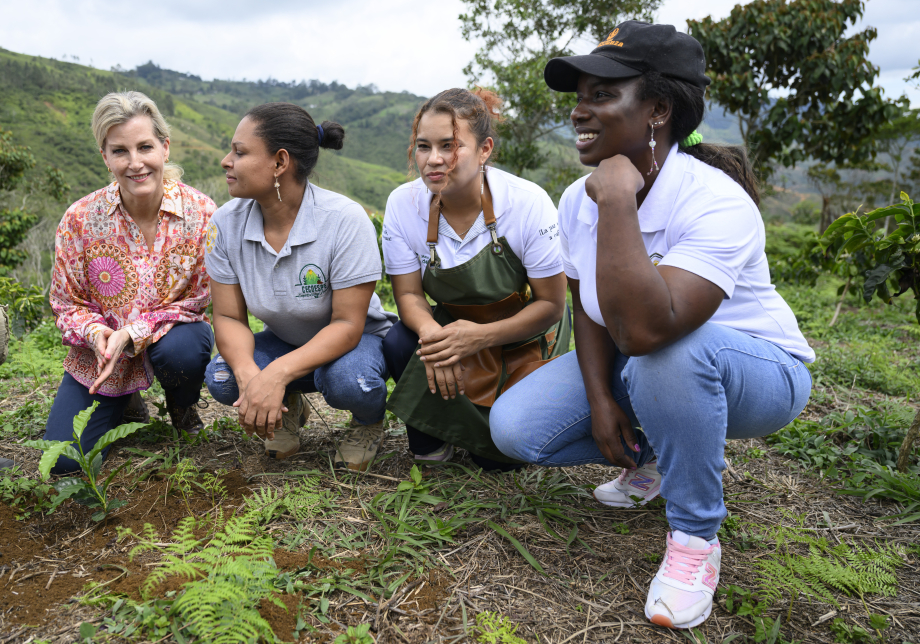
The Duchess of Edinburgh visited the Centre for Research on Tropical Agriculture (CIAT) Seed Bank as Honorary President of LEAF, which supported sustainable food production.
During her visit, Her Royal Highness learned about CIAT’s work to promote food security through climate adaptation, as well as the critical role of women in science.
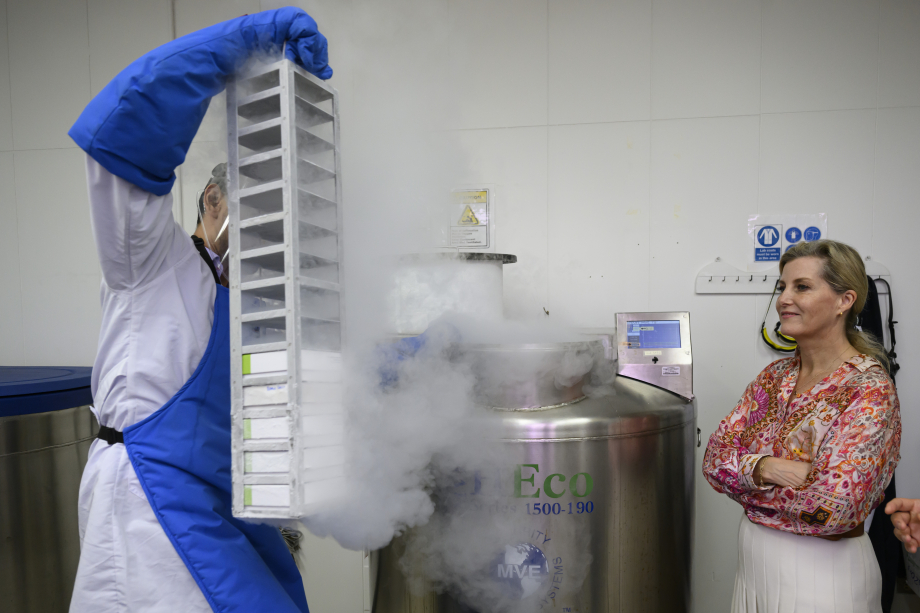
The Duchess also visited the Humboldt Institute's molecular analysis laboratory to view UK DNA sequencing technology, which was being used to transform the tracing of the illegal wildlife trade.
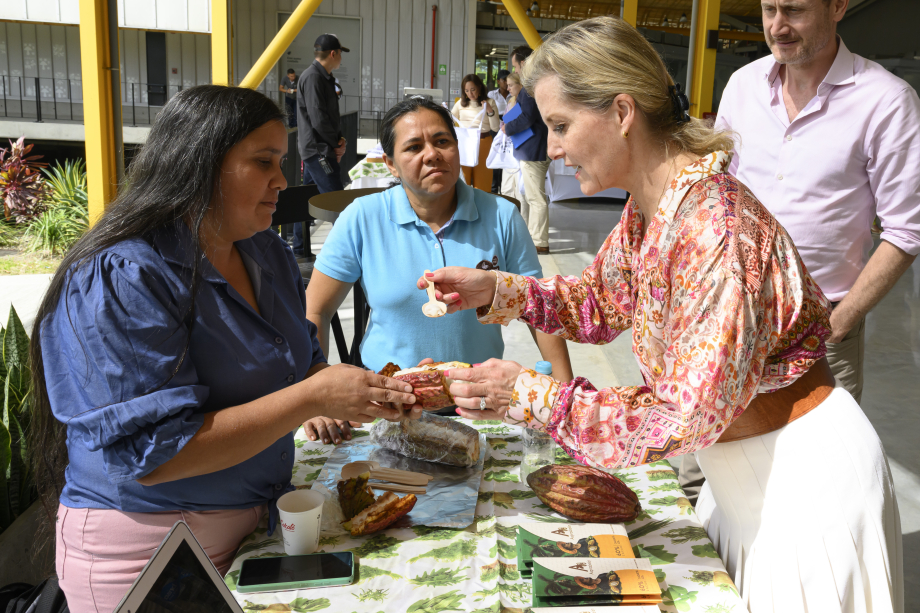
The conflict in Colombia had a disproportionate effect on women and girls, many of whom were survivors of conflict-related sexual violence (CRSV). The Duchess of Edinburgh hosted a meeting with peace builders and survivors of CRSV, and heard their testimonies, experiences, and their role in peace processes, ahead of Colombia’s year as Chair of the International Alliance on PSVI in 2024.
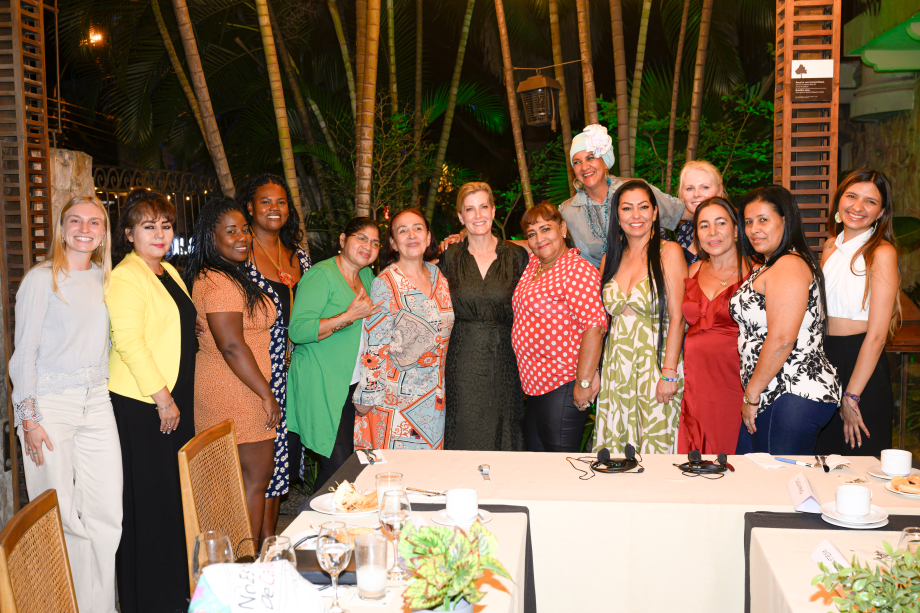
Thursday 30th November
In Cali, The Duchess of Edinburgh visited La Licorera, the city’s cultural centre for dance and choreography. Here, Her Royal Highness attended a workshop with those involved in the British Council’s new Creative Bootcamp: Dance and Peace program.
This initiative provides new opportunities for young people in the Pacific region impacted by armed conflict by supporting the entrepreneurship initiatives of dance groups in the region. The Duchess, Patron of the Central School of Ballet, met local dancers from Incolballet, the Colombian Ballet Institute (Instituto Colombiano de Ballet), and learned about the positive role the arts played in healing communities and building peace.
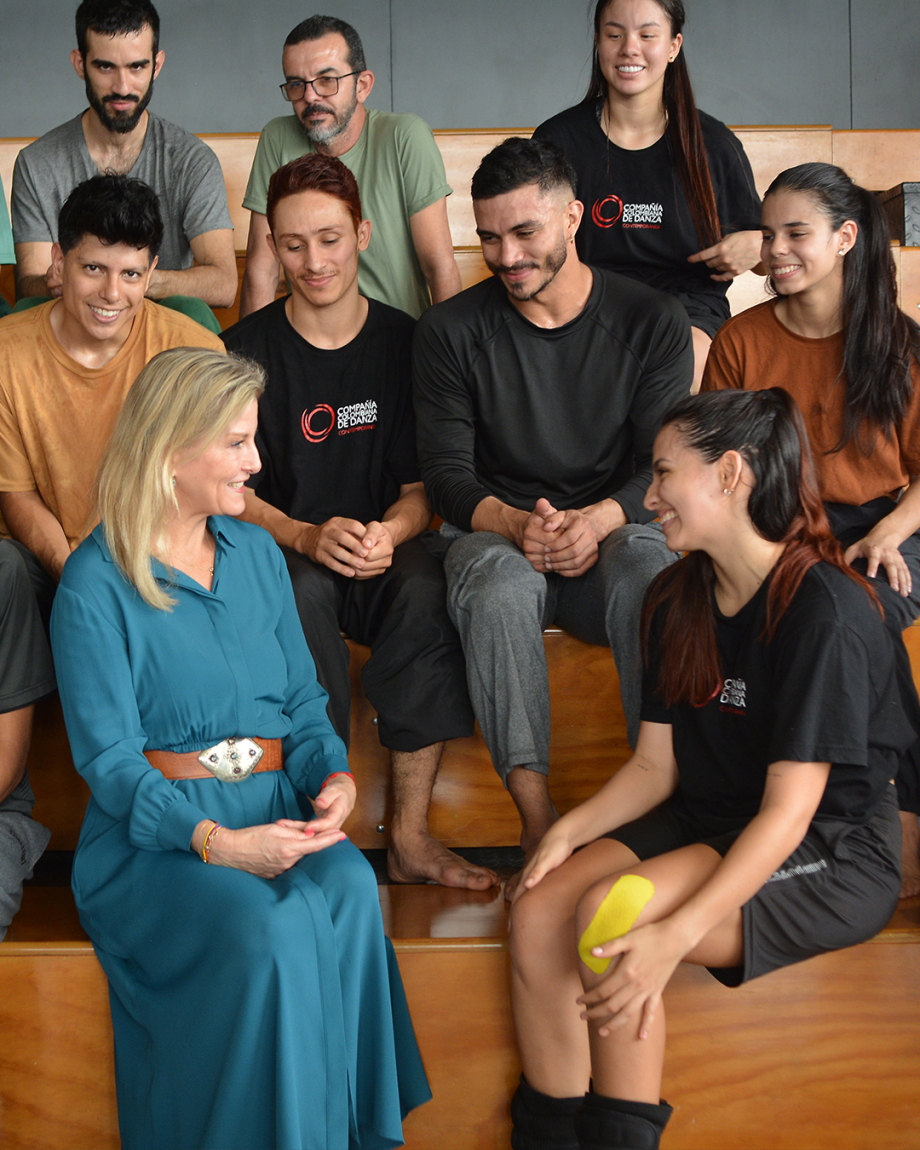
The Duchess’ visit to Colombia comes one year after the Prevention of Sexual Violence in Conflict International Conference in London.
In Bogotá, Her Royal Highness marked this anniversary at a roundtable meeting with Colombian PSVI stakeholders as the country prepared to take on the role of Chair of the International Alliance on Preventing Sexual Violence in Conflict in 2024.
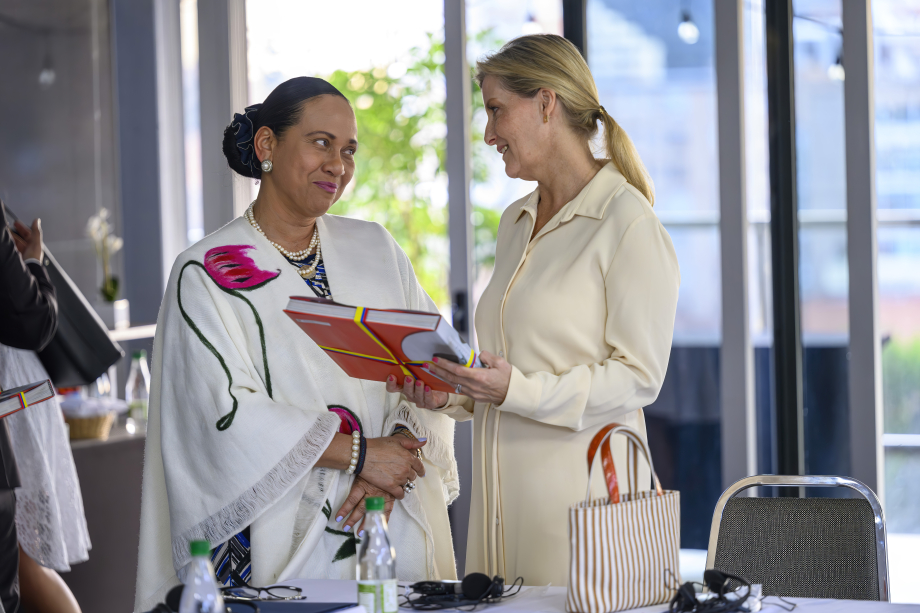
The Conference, attended by over 1000 representatives from 57 countries last year, brought together survivors of conflict-related sexual violence with a shared goal to address root causes, hold perpetrators accountable, deliver justice for survivors, and support children born of sexual violence. They also aim to tackle the stigma faced by these children in their communities.
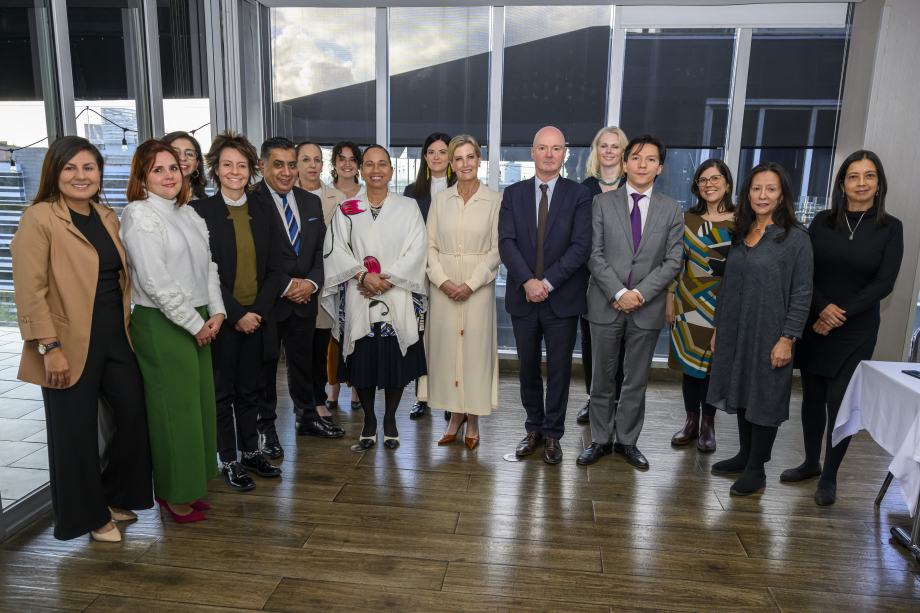
At the British Residence, The Duchess of Edinburgh attended a Peace and Sustainable Fashion showcase called 'Moda-Paz-Sostenibilidad'. The event demonstrated the links between peace and the natural environment in Colombia and featured the work of designers impacted by the armed conflict, including ex-combatants and survivors.
Their sustainable fashion brands not only protect the natural world but also create alternative, viable livelihoods within their communities that have suffered during the armed conflict and organized crime. The brands provide a creative outlet to tell their stories.
The Duchess, Patron of the London College of Fashion, had the opportunity to congratulate the designers behind the scenes of the fashion show before addressing assembled guests, including those working on issues related to women, peace, security, conflict resolution, and the protection of Colombia’s biodiversity.
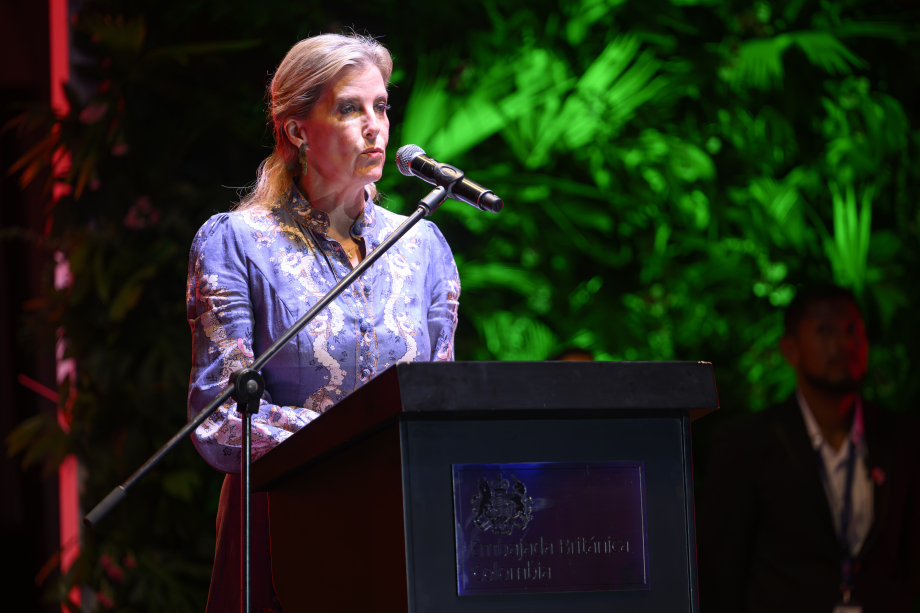
Related content
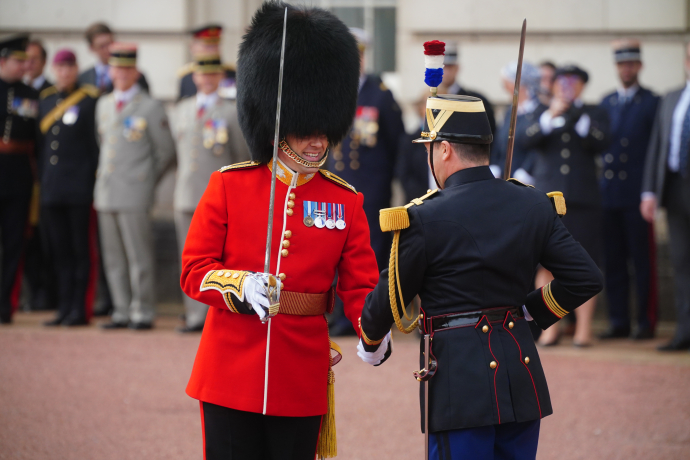
A speech by The Duchess of Edinburgh, via video message, at the Restoration of the Conflict-Related Sexual Violence Survivors’ Rights Conference, Ukraine
We must stand shoulder to shoulder with all survivors to secure justice and holistic redress, and ensure that this crime isn’t an accepted part of conflict.


